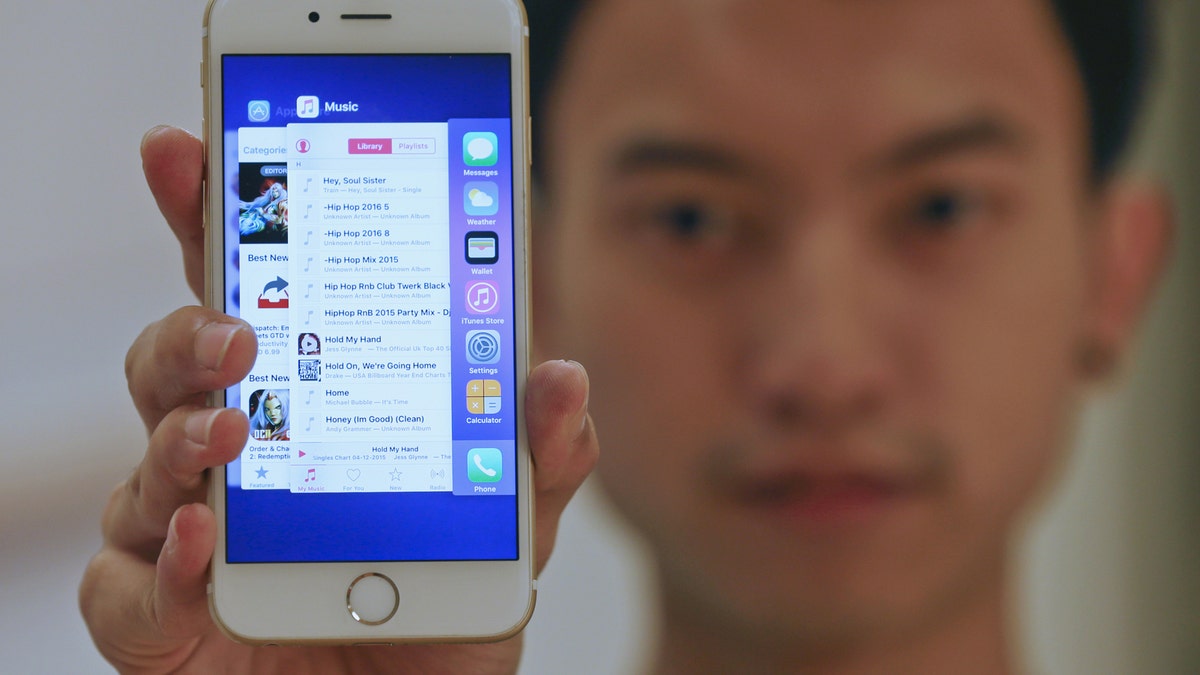
File photo: (REUTERS/Chaiwat Subprasom)
Apple has updated its privacy page, revealing all the secret ways your iPhone protects your privacy.
It comes as tech firms face mounting pressure to take better care of your info – and just days after Facebook revealed it had given hackers access to 30 million user accounts.
1. Everything on your phone looks like gibberish to hackers
Absolutely everything on your phone is encrypted by Apple, making it impossible for hackers to nick.
CLICK HERE FOR MORE FROM THE SUN
If you've got a passcode or Face ID set up, your data is turned "into indecipherable text".
That text can only be read by a person with the right digital "key" – that's you, with your passcode or face.
Apple was one of the first companies to include this sort of technology at operating system level.
Importantly, there's no back-door: Apple has resisted government and police pressures to create a loophole.
According to Apple, creating a back-door for security services also gives hackers an entry-point into your iPhone too – and that's bad news for everyone's privacy.
Apple's messaging services are also encrypted, too.
Any texts sent over iMessage or FaceTime calls are garbled, so that no one can intercept them during transit – and see your secrets.
2. Safari browser makes life hard for snoopers
Security boffs are constantly heaping praise on Apple's Safari web browser – and with good reason.
The browser blocks third-party cookies (small tracking files) by default, which makes it harder for websites and advertisers to snoop on your internet activity.
There's also a feature called Intelligent Tracking Prevention, which doubles down on this tech by disguising your online identity – making it near-impossible for advertisers to follow you around the internet.
This is optional, of course: if you want ad-tracking, you can allow it at any time.
Apple also designed Safari so that harmful code is isolated to a single browser tab. This means it can't escape and snatch up your info from other parts of your browser or iPhone.
3. Apple Maps makes it impossible to track your movements
Apple Maps was absolutely rubbish when it first launched – but it's come a long way since then.
Google Maps might be more popular, but Apple Maps has some key security advantages.
You never have to sign into Maps, for a start.
And personalized features like telling you to leave for an appointment are created using data on your device – not info held on Apple's servers.
Any journey you make using Apple Maps is split up on Apple's servers, and each part is given a unique, random identifier.
This makes it impossible for anyone (Apple included) to find out where you've been.
There's no giant log of your location history (unlike Google Maps), either.
4. You can't be tracked through your Siri searches either
Voice-controlled virtual assistants like Siri are often controversial – because people rightly have privacy fears.
To improve Siri, Apple has to scoop up some data, but goes to fairly impressive lengths to keep it safe.
For a start, all of your Siri searches are encrypted during transit to Apple HQ.
And the searches are linked to a random identifier, rather than to your Apple ID. That means no one can ever check to find out what you yourself have been searching for.
It's also possible to reset this random identifier by turning Siri & Dictation off and on again.
Apple also avoids taking info from your phone that it doesn't need to.
So if you're using Siri to search for a photo by location, it doesn't need to send that photo to a server – it can all happen on the device.
5. Apple blocks out dodgy apps to keep you safe
One of the things that keeps iPhone users particularly safe is the App Store.
Anyone making apps for the iPhone has to agree to very specific privacy and security guidelines.
These apps also need to create a privacy policy that you're able to view at any time.
If an app violates any guidelines, the app risks being banned from the App Store.
All apps go through a review process that makes sure they do exactly what they say they will.
And when an app is installed on your phone, you're asked to give permission the first time it tries to access your location or photos.
You can change those permissions in your Settings app at any time, too.
If you've got an iOS 11 device or later, it's also possible to restrict location access to apps only while you're using it – so they can't snoop on your movements in the background.
Apple also puts blocks in so some types of data are impossible to access – like your passcode or fingerprint.
This story originally appeared in The Sun.








































